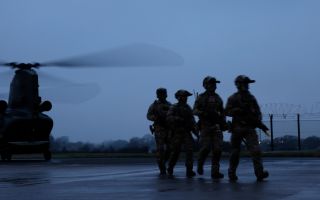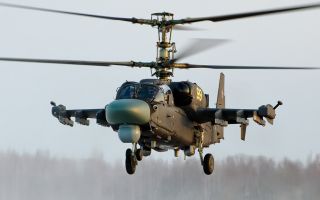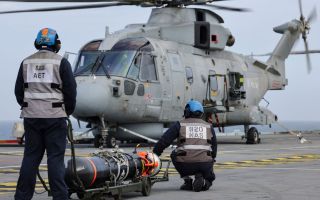Working in military cyber lets you 'do things that anywhere else would get you locked up'
Working within the military's cyber domain lets people "do things that anywhere else they're going to be locked up", the Deputy Commander of the UK’s Strategic Command has said.
Lieutenant General Tom Copinger-Symes told Forces News that this was an attractive proposition for people who like solving problems and spotting patterns.
He said cyber, along with space, were two up-and-coming domains within the Armed Forces that were hugely important.
He said: "They are new kids on the block, they're not very well understood.
"But I think over time people are beginning to get their heads round the fact that in cyberspace we're operating every single minute of every single day."
He was speaking at a careers festival at the University of Central Lancashire which is looking to recruit the next generation of cyber experts, with both GCHQ and National Cyber Force personnel present.
"We're in competition... with the banks, with industry, with people who can frankly pay more," Lt Gen Copinger-Symes told Forces News.
But he added: "What they can't do is give the range of fascinating roles we can, and quite frankly in cyberspace we can allow people to do things that anywhere else they're going to be locked up.
"That's an amazingly attractive proposition to young folk who like solving problems, who like spotting patterns, who like coding [and] who are good software engineers.
"We can offer them not just the most fascinating jobs, we can probably offer them learning and development opportunities they couldn't get anywhere else."
Lt Gen Copinger-Symes said Ukraine deserved credit for bolstering the country's cyber defences since the initial Russian invasion in 2014.
"There's a slight myth out there that cyber is the dog that didn't bark at the start of the Russian invasion of Ukraine about 18 months ago," he explained.
"As I say, that's a myth, and if you want to look at an example, the ViaSat hack which was the Russians getting into and taking down the system of satellite communications.
"That was a really big event that had an impact on Ukrainians but also had an impact, for instance, on the German agricultural and alternative energy system.
"Huge tribute to the Ukrainians, who have done an awful lot of work since 2014, Russia's first invasion, to strengthen their systems and make more resilient their government and their military.
"Despite that activity by Russia, they were able to recover and get that going and it didn't have the impact that Russia intended."









